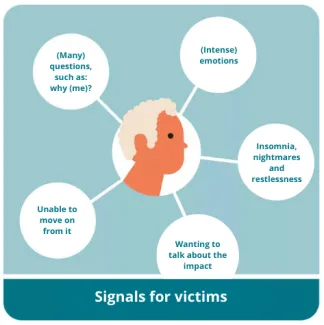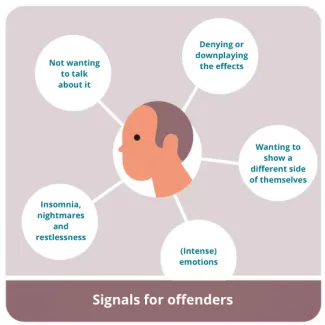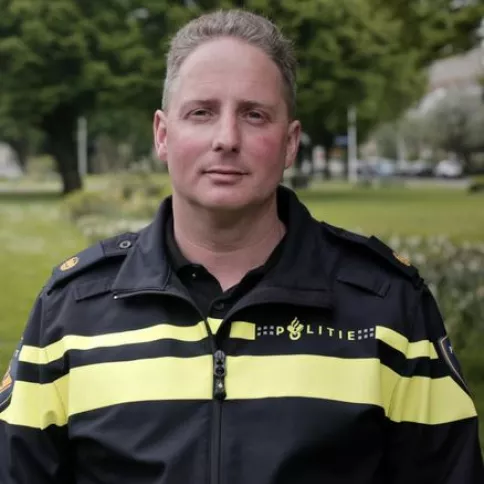

Signals for mediation
Restorative mediation is a process that already starts before someone decides to apply with us. The want and need for mediation often becomes apparent in conversations with a professional.
Signals with victims
When it comes to victims or relatives of the deceased, it is important to thoroughly ask what they want and need.
Signals may include:
- Wanting answers to questions about the facts surrounding what happened.
- Why questions: why me? Why did it happen like that? Why would they do something like that?
- Wanting to take back control of their life, but the (idea of) the offender keeps getting in the way
- Wanting to talk about the effects and consequences
- Being scared or angry
- Insomnia, nightmares and/or restlessness
Read more about your role as a referrer.
Victims and relatives of the deceased often feel powerless, angry and sad about what happened. They could be left with questions only the offender has an answer to. For example: how did you get into my house? What were the last words of my child/my partner? Why did the offender chose me, what moved them to do that?
Often times the victim is very angry with the offender and feels the need to tell them about the impact of what they did. Or the victim could be scared: they could be scared to go outside, scared to run into the offender, or maybe they don’t know what the offender looks like, and in their eyes, anyone could be the offender.
Signals with offenders
Many offenders want to get rid of their feelings of guilt. Self-recovery and processing of guilt are important factors for a healthy self-image and good behavior for the future. Being able to empathize with the victim is part of this. So it is very important to discuss the offense and the feelings of guilt with them.
Signals may include:
- Denying that their offense had any victims
- Downplaying the effects of the crime, or of crime in general
- Assigning (partial) blame to the victim, the crime, or crime in general
- Only wanting to talk about the future, not the past or the crime
- Reacting emotionally (e.g. angry) or defensively when their crime or victims are mentioned
- Insomnia, nightmares, and/or restlessness
See our tips to open the conversation about contact.
Offenders often don’t show that they want to talk about the crime, the effects, and the victims they made. But this doesn’t mean they don’t think about it. To make this bearable, they may deny their guilt, avoid it, or skew it.
Out of their survival instinct, offenders may only speak of their crime in past tense, or they may emphasize the role of the victim and make their own role as small as possible. This can prevent the offender from empathizing with the victims, which can get in the way of self-recovery and processing of guilt.
“They can give the incident a place in their mind.”

Family police officer Stefan helps people who were involved in major traffic incidents.
He refers victims, relatives of the deceased, and causers of accidents to Perspectief Herstelbemiddeling if they want to get in contact with each other.
Stefan, family police officer traffic cases
Restorative mediation after a traffic accident: two experiences
These are the experiences of Sharon and Marco, who were involved in two separate traffic accidents. Family police officer Stefan and Victim Support staff member Ans talk about their experiences regarding applying people involved in an accident for restorative mediation.
